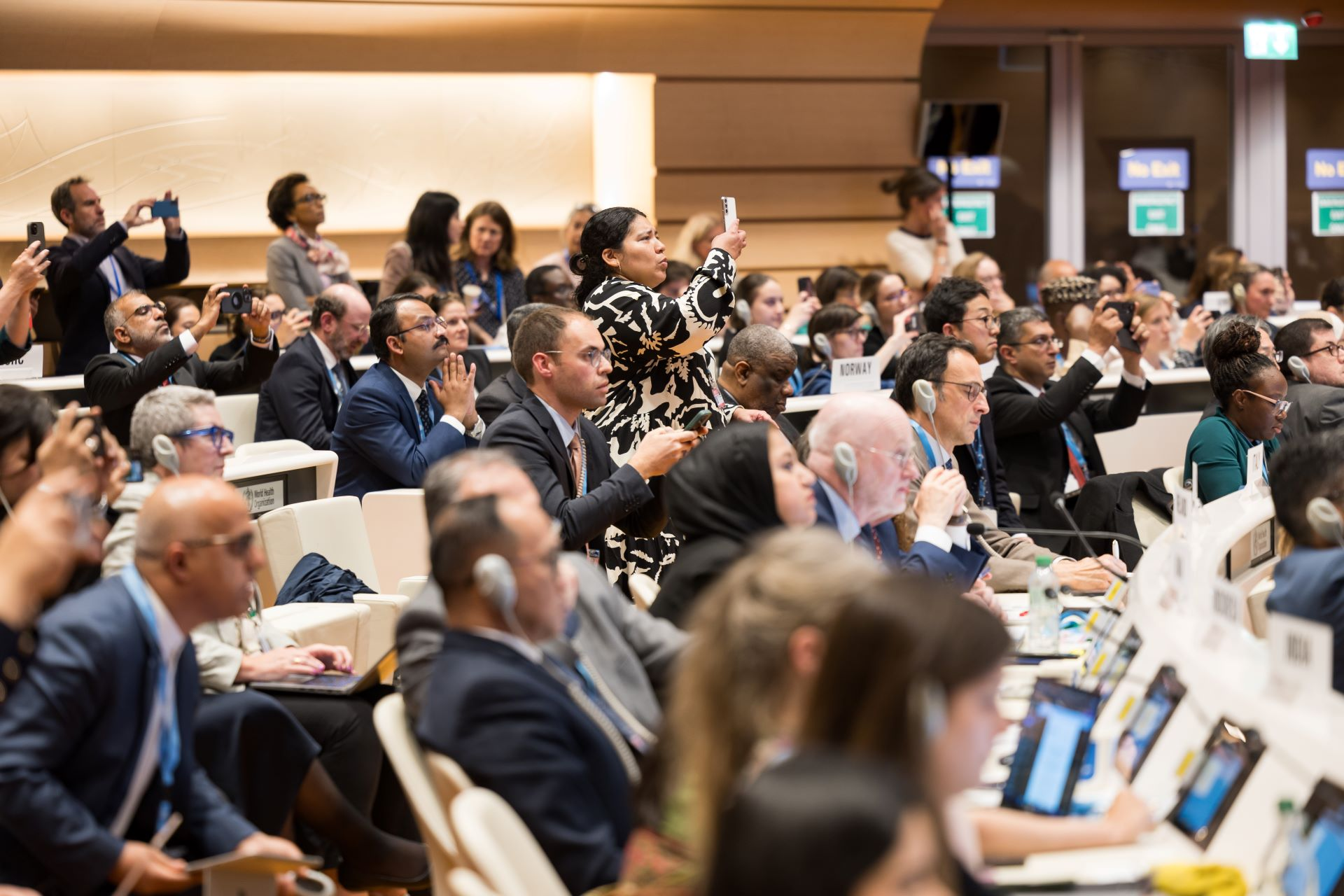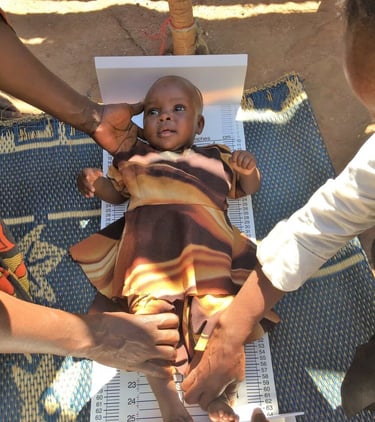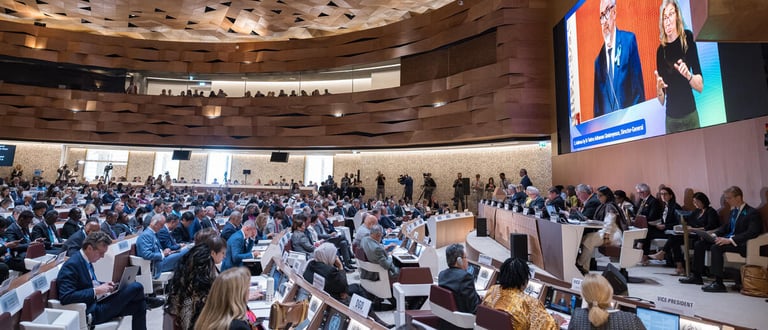
Global Nutrition Gets a Powerful Push at WHA 2025
At WHA 2025, world leaders set bold new nutrition goals for 2030 and took action against misleading formula marketing. Big steps for little lives!
Ayra Khan
6/25/2025
Global Nutrition Gets a Powerful Push at WHA 2025
Geneva, May 2025 — Big news just dropped from the World Health Assembly, and it’s all about nutrition, babies, and the future of our planet.
In a world where nearly 240 million children are still battling stunting, wasting, or obesity, the World Health Organization (WHO) has said: "Enough is enough." This May, countries from around the globe came together to recommit to fighting malnutrition and reshaping how the world feeds its youngest citizens.
So, what exactly happened?
Two major resolutions were passed:
The extension of the Global Nutrition Targets to 2030
A crackdown on the digital marketing of infant formula and baby foods
Let’s break down what that means (and why you should care).
A Better Future by 2030 – The Nutrition Goals That Matter
Back in 2012, the WHO created a global plan to reduce child malnutrition. Fast forward to 2025 — some progress has been made, but millions of children are still being left behind.
That’s why leaders are now doubling down with stronger goals, smarter strategies, and a new deadline: 2030.
Here’s what the world has agreed to work on:
Shrink stunting by 40% in kids under 5
Cut anaemia in women by 50%
Increase exclusive breastfeeding to 60%
Lower childhood overweight and wasting to under 5%
Reduce low birth weight by 30%
These aren’t just numbers. Every percentage point represents real children with better chances to grow, learn, and live full lives.
But wait — there’s more!
This time around, the plan isn’t just about setting goals. Countries are being asked to take real action:
Train health workers in nutrition
Integrate food policies across schools, clinics, and communities
Tax sugary drinks (yes, finally!)
Monitor dietary diversity and food security in vulnerable areas
And they’re thinking ahead. The plan also tackles challenges like climate change, rising food prices, and displacement, which are making it harder for families to access nutritious food.
The Formula Industry Is Getting a Wake-Up Call
We’ve all seen it: influencers casually promoting baby formula on social media, claiming it's just as good as breastfeeding. Spoiler alert: it’s not — and now the WHO is cracking down.
The second resolution passed at WHA 2025 focuses on stopping manipulative digital marketing of breast-milk substitutes. This includes:
Regulating formula ads on Instagram, YouTube, and TikTok
Banning misleading health claims
Building strong systems to monitor and enforce marketing rules
Because no new parent should be tricked into feeding their baby something that isn’t truly in the child’s best interest — especially during the crucial first 1000 days of life.
As a representative from the FDI World Dental Federation put it:
“Breastfeeding doesn’t just nourish — it protects children from lifelong disease, including those caused by high sugar intake.”
Why This Matters (To Everyone)
This is not just a story for public health experts or policymakers. It’s about your future kids, your neighbors’ kids, your community’s wellbeing. Nutrition in early life lays the foundation for everything — growth, brain development, immunity, academic performance, even future income.
And while the 2030 goals are ambitious, they’re also achievable — if countries turn these resolutions into action.
So here’s to stronger policies, healthier babies, smarter food choices, and a world that’s finally realizing that nutrition isn’t optional — it’s fundamental.
📌 Stay tuned to NutriFormed for fresh updates on global health breakthroughs, practical nutrition tips, and the stories shaping tomorrow’s wellness — today.






Nutrition
Explore the latest in nutrition and diets.
Health
Wellness
ayra.azat@gmail.com
© 2025. All rights reserved.